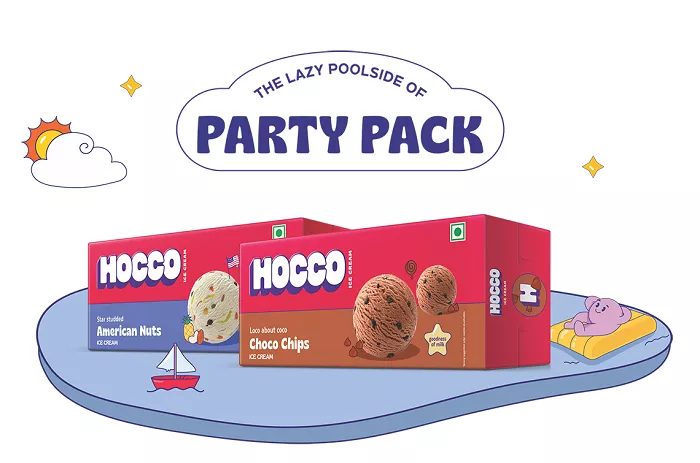Amid growing social media claims that Hocco Ice Cream contains harmful ingredients, a fact-check by Fact Crescendo has confirmed that the brand’s products meet established food safety standards and are safe for consumption within regulated limits.
The controversy began when online users alleged that ingredients such as INS 102, INS 110, INS 124, INS 476, and palm oil used in Hocco Aamchi Ice Cream were linked to serious health concerns including cancer, liver enlargement, kidney issues, and hyperactivity. However, expert analysis and regulatory reviews suggest these claims are misleading.
Regulatory Oversight and Scientific Findings
INS 102 (Tartrazine/Yellow 5): Though older studies indicated potential DNA damage in white blood cells under certain conditions, regulatory agencies including the U.S. Food and Drug Administration (FDA) and the European Food Safety Authority (EFSA) have deemed the dye safe for use in food, including yogurt and ice cream, when consumed within acceptable daily intake (ADI) limits.
INS 110 (Sunset Yellow FCF/Yellow 6): Commonly found in confectionery and baked goods, Sunset Yellow has been reevaluated by EFSA, which raised the ADI from 1 mg/kg to 4 mg/kg body weight after reviewing updated scientific data. This additive is also widely approved across international food markets.
INS 124 (Ponceau 4R/E124): EFSA’s latest assessment concluded that even the highest levels of exposure to this red dye remain within safe consumption limits, including among toddlers and children. While it is not FDA-approved in the U.S., it is approved and regulated in several other countries.
INS 476 (Polyglycerol Polyricinoleate): Used primarily as an emulsifier in ice cream and other food products, INS 476 has also undergone recent EFSA evaluation. The agency found no safety concerns under proposed uses, including in frozen desserts, and recommended reducing trace impurities like arsenic and lead.
Palm Oil: Although high-temperature refining of palm oil can produce potentially harmful contaminants such as 3-MCPD esters and glycidyl esters, the FDA continues to monitor and research these compounds. Palm oil remains approved for food use, with manufacturers advised to minimize contaminant levels through refined processing techniques.
Verdict
Fact Crescendo’s investigation concludes that Hocco Ice Cream complies with national and international food safety regulations, and the ingredients in question are considered safe when consumed within regulated quantities.
As health-conscious consumers continue to scrutinize food labels, the importance of understanding regulatory limits and scientific context cannot be overstated. For those exploring latest ice cream franchise options or monitoring ice cream franchise costs, Hocco’s transparency and adherence to safety standards may offer reassurance and brand credibility in a competitive market.
Related topics
- F&N Magnolia Joins Forces With the Minions for Playful Ice Cream & Milk Line
- Pet Friendly Ice Cream: Benefits, Ingredients, and Delicious Flavors
- Blue Bell’s Cookie Two Step: The Ice Cream Staple in My Freezer


